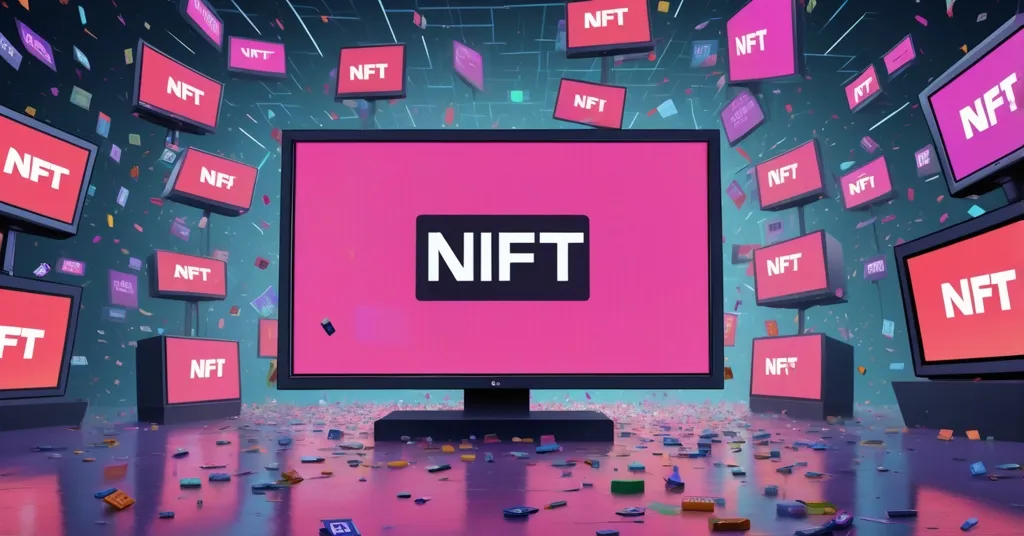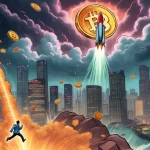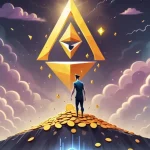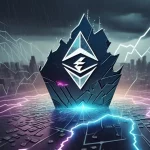LG Electronics Closes NFT Marketplace Amid Market Downturn

S Korean Electronics Giant LG Shuts Down Its NFT Marketplace
LG Electronics, a titan in the tech world, has made the surprising decision to pull the plug on its NFT marketplace, LG Art Lab. Launched amid the NFT frenzy in 2022, the marketplace aimed to revolutionize how digital art is consumed through integration with LG’s smart TVs. However, the broader downturn in the NFT market has forced LG to close its doors on this venture, reflecting a significant shift in the digital art landscape.
- LG Art Lab closure announced on March 20, 2025
- Marketplace launched in 2022, shut down by June 17, 2025
- User NFTs to be transferred to wallets by April 30, 2025
- Operated on Hedera and Ethereum blockchains
- Joins other closures like Kraken, Quidd, and Nike’s RTFKT
The closure of LG Art Lab was officially announced on March 20, 2025. The platform, which initially operated on the Hedera blockchain and later expanded to Ethereum, will cease new purchases as of March 10, 2025, with a complete shutdown scheduled for June 17, 2025. In a move to ensure a smooth transition, LG has committed to transferring all user NFTs (Non-Fungible Tokens) to their respective wallets by April 30, 2025. This gesture shows LG’s dedication to its users, even as it exits the NFT space.
The decision to close LG Art Lab comes amid a broader downturn in the NFT market. Once a thriving space with peak activity in the early 2020s, NFTs have seen a dramatic decline. A report from ARTnews highlighted the severity of the downturn, stating, “A report published earlier this month said that the market for NFTs has been in such a dramatic downturn since 2023 that 95 percent of them are considered ‘dead.'” Over 90% of NFT holders are now holding onto nearly worthless digital assets, a stark contrast to the days of high-profile sales and celebrity endorsements.
LG’s venture into NFTs was unique, integrating digital art with its smart TVs. This approach was driven by a commitment to sustainability, as Chris Jo, Sr. VP, Platform Business Head at LG, emphasized. He stated, “We chose Hedera for its carbon-negative status and low transaction costs, aligning with our environmental responsibility goals.” Despite these innovative efforts, the market’s downturn has forced LG to reconsider its strategy.
While the NFT market faces significant challenges, it’s not all doom and gloom. Sectors like gaming and virtual real estate continue to leverage NFTs to enhance user experiences and create new economic models. For instance, gaming platforms are using NFTs to allow players to own and trade in-game assets, while virtual real estate projects are selling digital land as NFTs. These areas demonstrate that NFTs still hold value and potential in specific niches.
The closure of LG Art Lab also reflects broader trends in the tech industry, where companies are reevaluating their investments in emerging technologies. This move by LG underscores the volatile nature of the crypto and blockchain space, where even giants must adapt to market dynamics. As the industry navigates these turbulent waters, it’s crucial to maintain a balanced perspective on the potential and pitfalls of cryptocurrencies and blockchain technologies.
Despite the challenges facing the NFT market, the broader crypto ecosystem, led by Bitcoin, continues to push the boundaries of financial innovation. Bitcoin maximalists might argue that NFTs were always a distraction from the true promise of blockchain technology—decentralized finance and digital ownership. However, altcoins and other blockchain projects, like Ethereum, have shown that they can fill unique niches and drive innovation in areas that Bitcoin does not serve.
As we move forward, it’s important to consider the future of digital art and NFTs. While the market may be cooling, the technology behind NFTs—blockchain—still holds immense potential. From decentralized finance to digital identity, blockchain technology is poised to disrupt the status quo and enhance freedom and privacy in the digital age. Effective accelerationism (e/acc) suggests that these technologies will continue to evolve and drive societal progress, even if the path is not always smooth.
Key Questions and Takeaways
- Why did LG Electronics decide to shut down its NFT marketplace?
LG decided to shut down its NFT marketplace due to the poor performance and declining interest in the NFT sector over the past few months.
- What was the timeline for LG Art Lab’s closure?
LG Art Lab ceased new purchases on March 10, 2025, and plans to transfer all user NFTs to their wallets by April 30, 2025, with a complete shutdown on June 17, 2025.
- Which blockchain networks did LG Art Lab operate on?
LG Art Lab initially operated on the Hedera blockchain and later expanded to Ethereum.
- What other companies have recently closed their NFT marketplaces?
Other companies that have recently closed their NFT marketplaces include Kraken, Quidd, MakersPlace, Nike’s RTFKT, and GameStop.
- How has the NFT market performed since its peak in the early 2020s?
Since its peak, the NFT market has experienced significant fluctuations and a downturn, with over 90% of NFT holders holding nearly worthless items according to a recent report.
- What sectors within the NFT market continue to find value despite the downturn?
Despite the general downturn, sectors such as gaming and virtual real estate continue to find value in NFTs.



